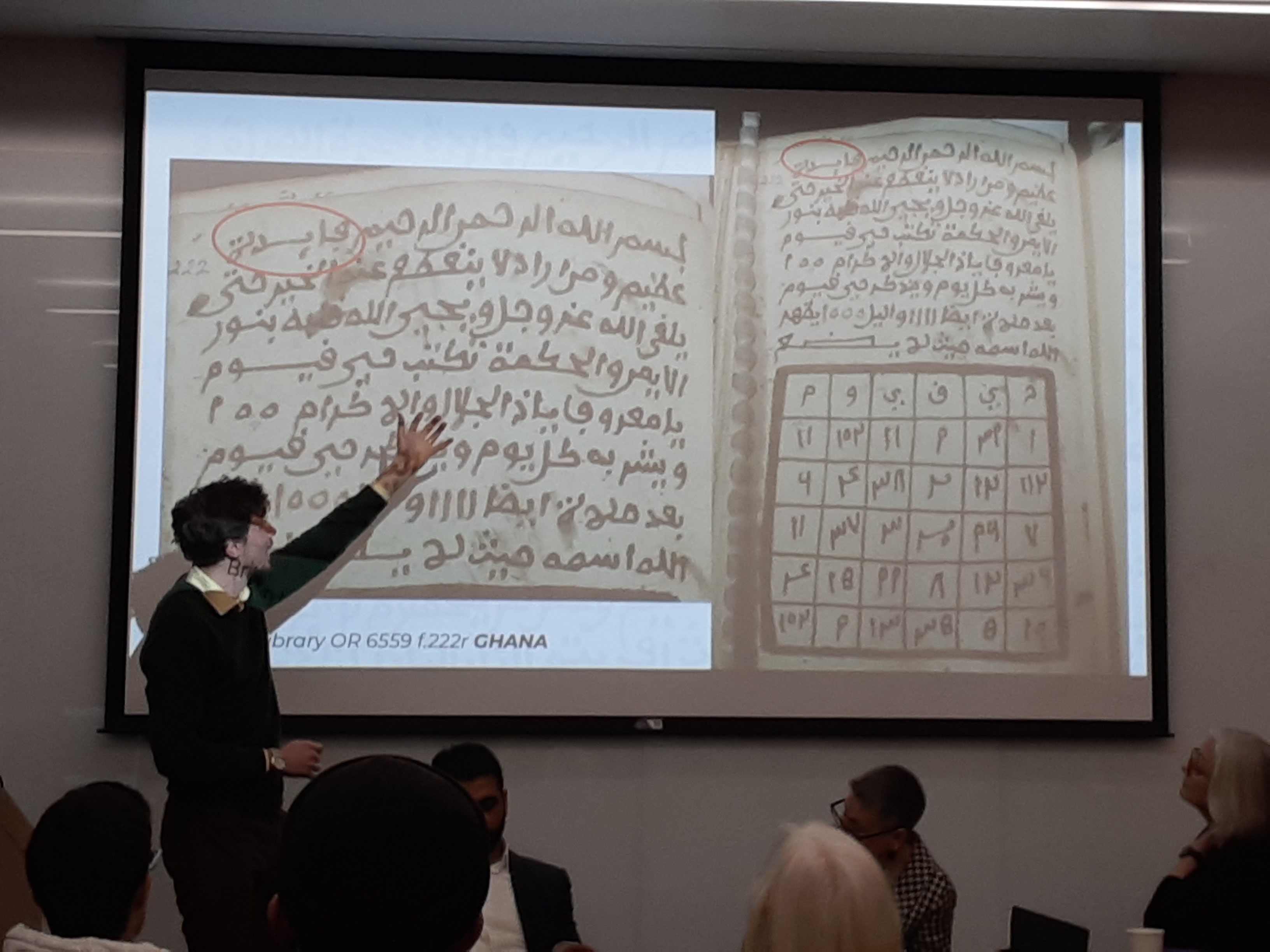ISITA co-sponsors translation symposium
We often find ourselves translating as part of our intellectual project, and we are engaging with theories or avoiding them for a reason. We need to build a culture of prestige around translation and support practitioners who are devoted to creating a space where there is a necessary intersection between the academic world and the public.”
Xena Amro, symposium organizer
ISITA was the co-sponsor of a January 27, 2023 symposium, titled “Translation Practices across Institutional Borders: from the Scholar to the Public.” Organized by Xena Amro, PhD student in Comparative Literary Studies and ISITA’s graduate assistant, the primary sponsors were Comparative Literary Studies, the Department of Asian Languages and Cultures, and the Alice Kaplan Institute for the Humanities.
The day-long symposium brought together Northwestern faculty and graduate students as well as scholars, translators, and editors/publishers from outside Northwestern for a day of discussion. Translation was inclusively defined, to consider the interdisciplinary methodologies of translation that go beyond linguistic transformations. Participants thought together about the scholarly, ethical, practical, and emotional imperatives of doing the work of translation within academic institutions to reach the broader public. Lively panels involving Northwestern faculty and graduate students engaged the audience with their own experiences with translation. The symposium brought forth topics including the ethical implications of translating South Asian Dalit literature; the acts of translation involved when musical and visual artists collaborate; the metaphysics of translating Sufi texts; exploration of how long-term personal relationships between authors and translators impact the act of translation; the development of a translators “Adda,” or meeting place, to encourage community involvement in translation, and others. Also included were publishers and editors; for instance, Susan Harris discussed her editorial role on Words Without Borders, a magazine dedicated to international exchange through translation practices. She discussed how they select translations, assess their linguistic and aesthetic quality, and promote their circulations. Yopie Prins, professor of Comparative Literature at the University of Michigan, shared her initiative on “Translating Michigan,” a multidisciplinary research project that works against cliches of the Midwest as a monolingual, racially homogeneous rural heartland.
The Maktaba project, a joint initiative between ISITA and the University of Illinois at Urbana-Champaign was featured on the panel titled “Bridging the Divide between Academia and the Public.” Mauro Nobili, project lead at University of Illinois at Urbana Champaign, highlighted the battle for sources in the field of African history and how historians’ focus on the colonial library has obscured the so-called “Islamic library,” produced by Africans in Arabic and ‘Ajami. The Maktaba project endeavors to open that Islamic library to non-specialist audiences by creating an online collection displaying images of selected manuscripts from the UIUC and Northwestern University libraries, alongside English translations and contextual essays. Paul Naylor (cataloger of West African manuscripts at Hill Museum and Manuscript Library), one of a group of international scholars producing translations for Maktaba, discussed the challenges of translating fāʼidahs--a genre of texts offering specific recipes, ritual practices, or physical actions that promise to afford the user assistance in times of need (e.g., in health, finance, relationship, etc.). Fāʼidahs, Naylor explained, are important socio-cultural documents that are prevalent in West African collections and provide a non-elite perspective on the struggles and concerns of daily life.
According to organizer Xena Amro, “Reflecting on the translation symposium, which proved the urgency for these interdisciplinary conversations to take place, I believe it succeeded in advancing the recognition and influence of translation practices at the university level. We often find ourselves translating as part of our intellectual project, and we are engaging with theories or avoiding them for a reason. We need to build a culture of prestige around translation and support practitioners who are devoted to creating a space where there is a necessary intersection between the academic world and the public.”
